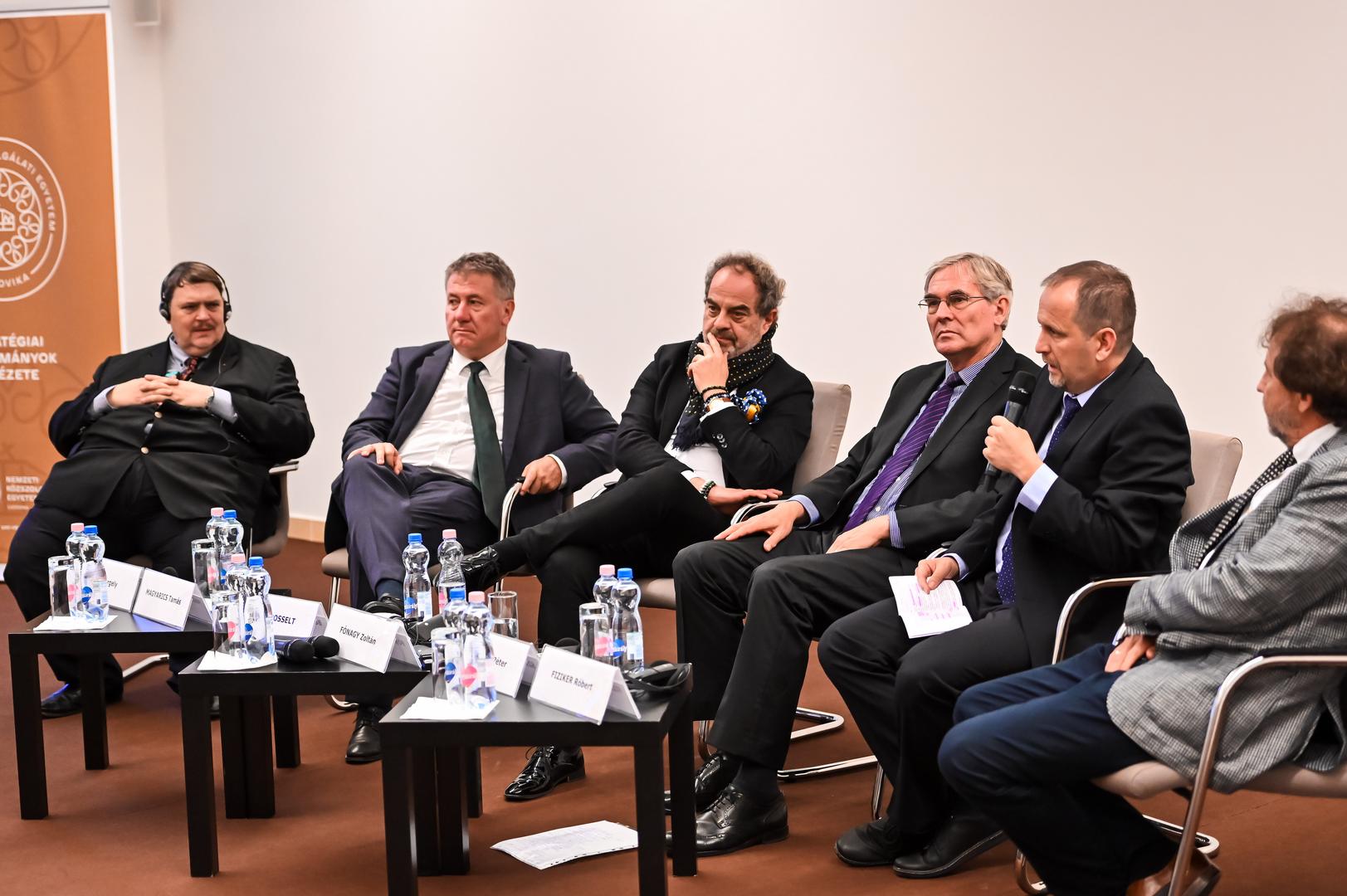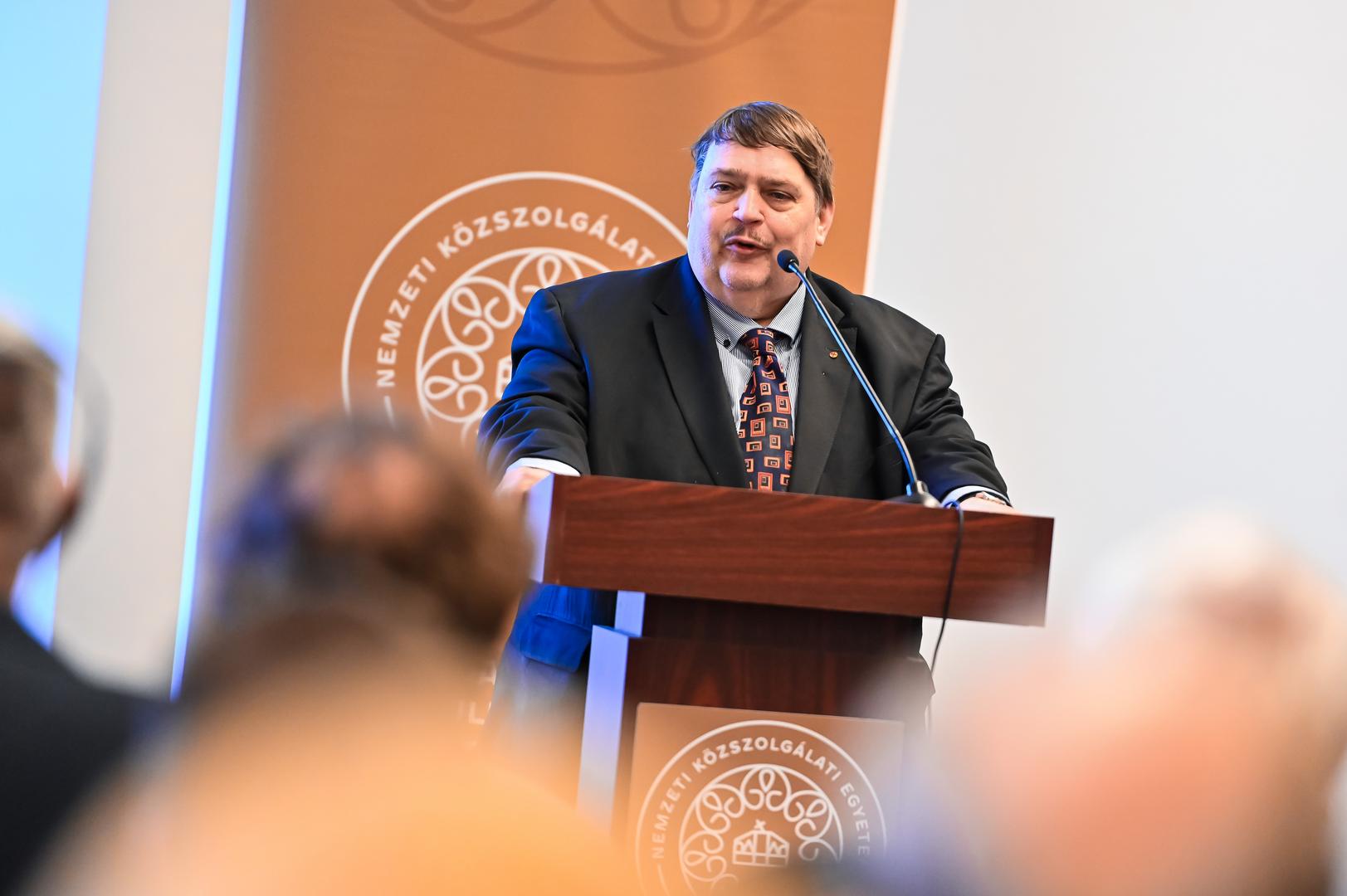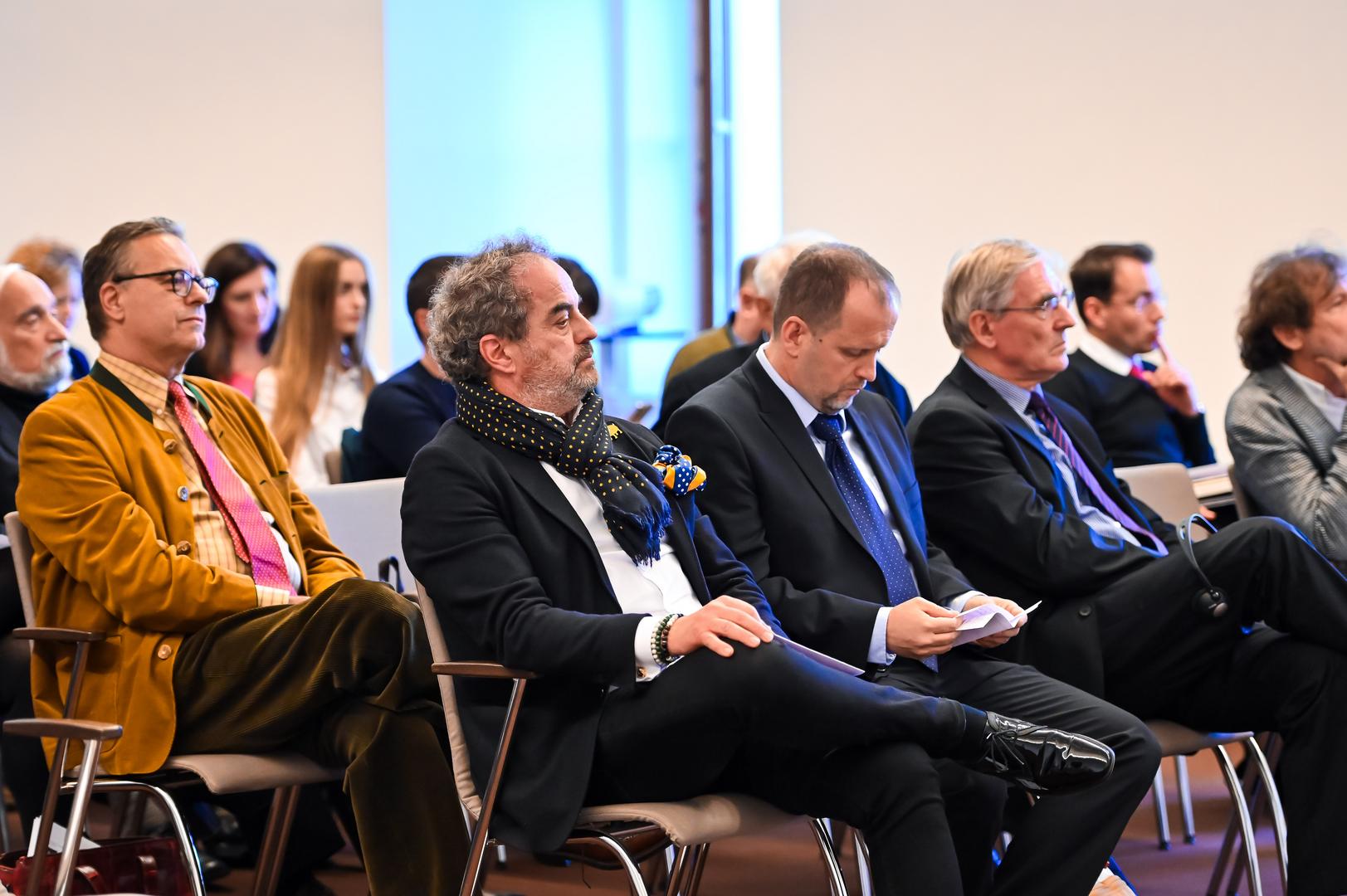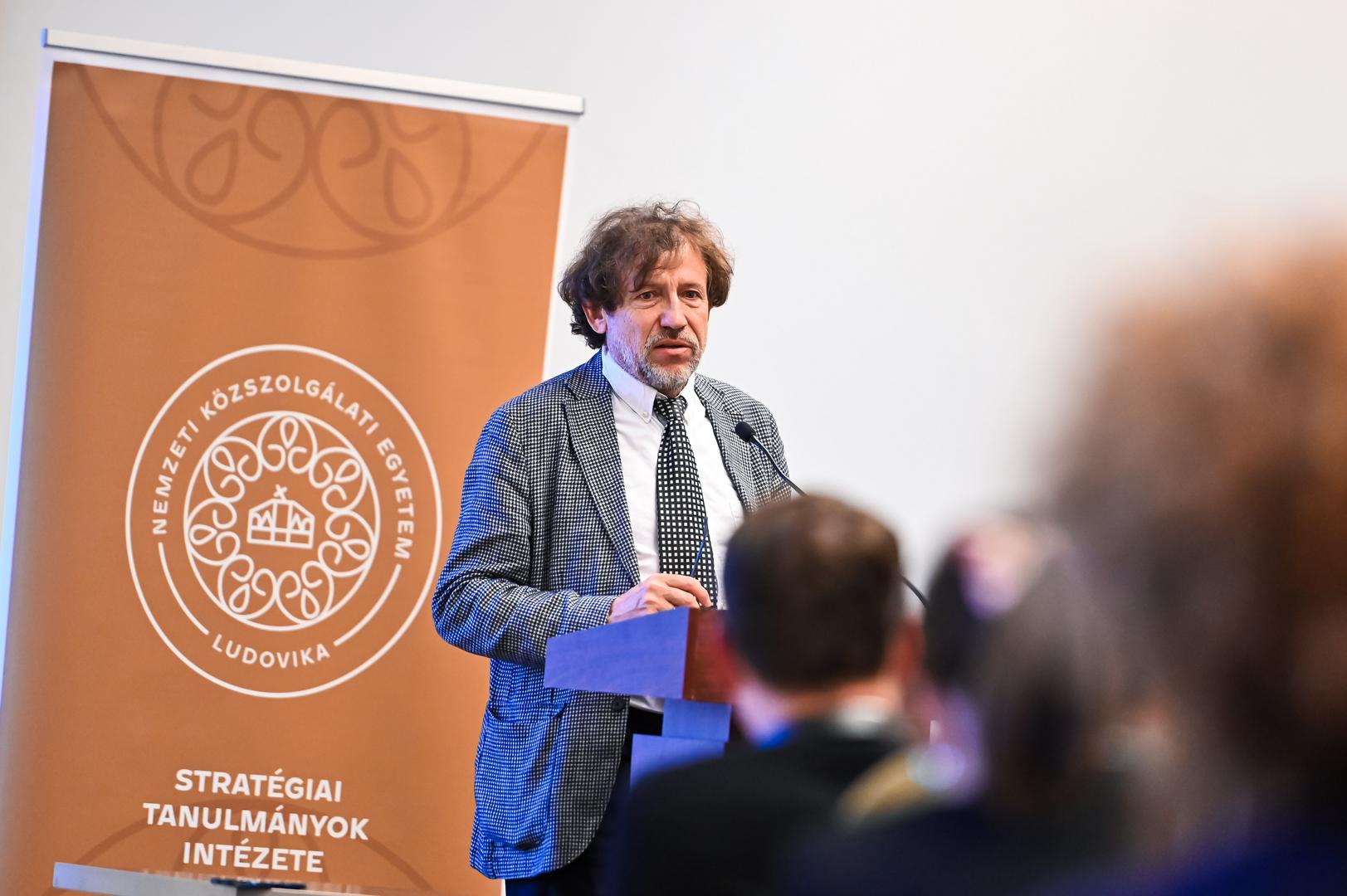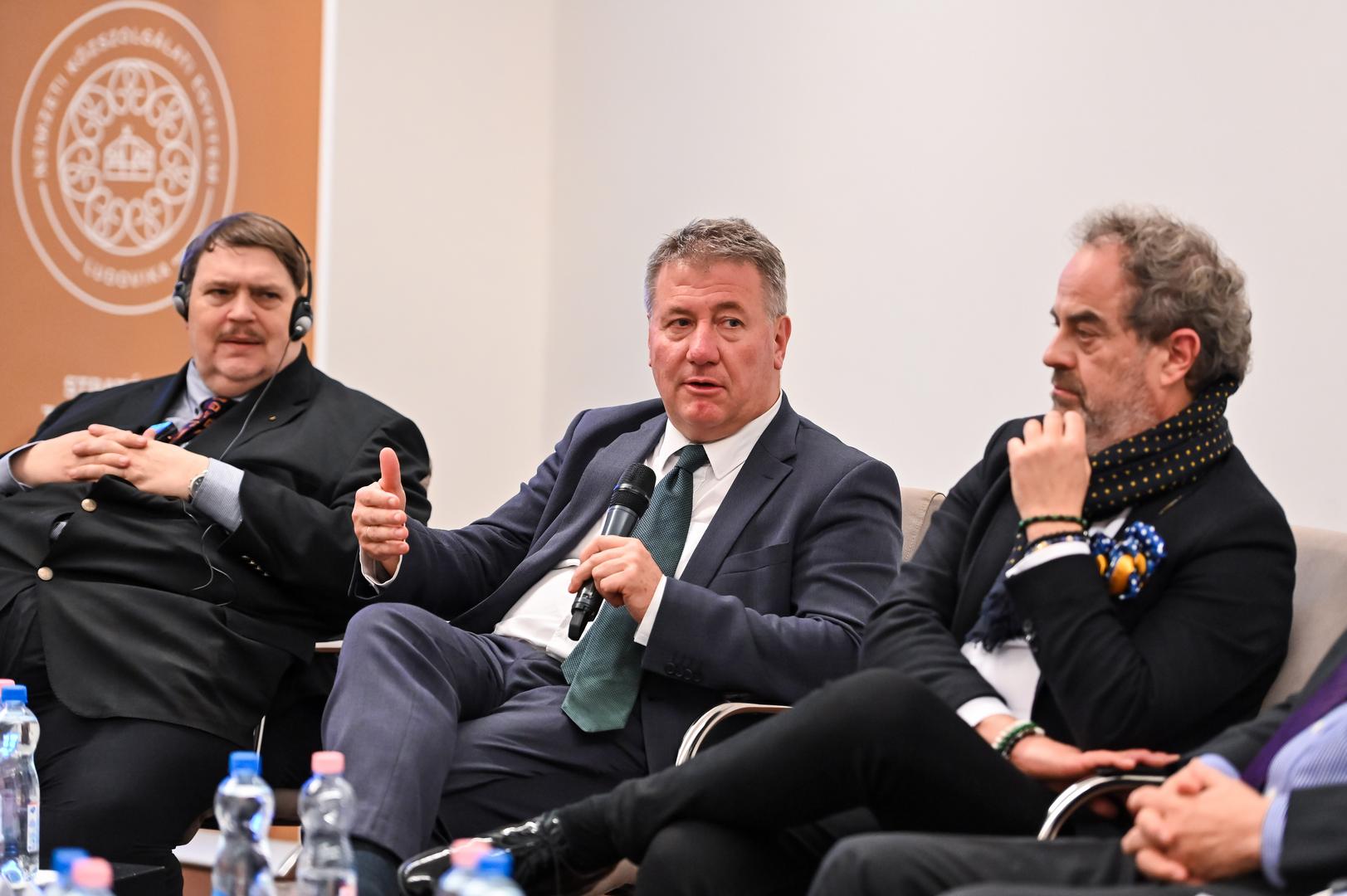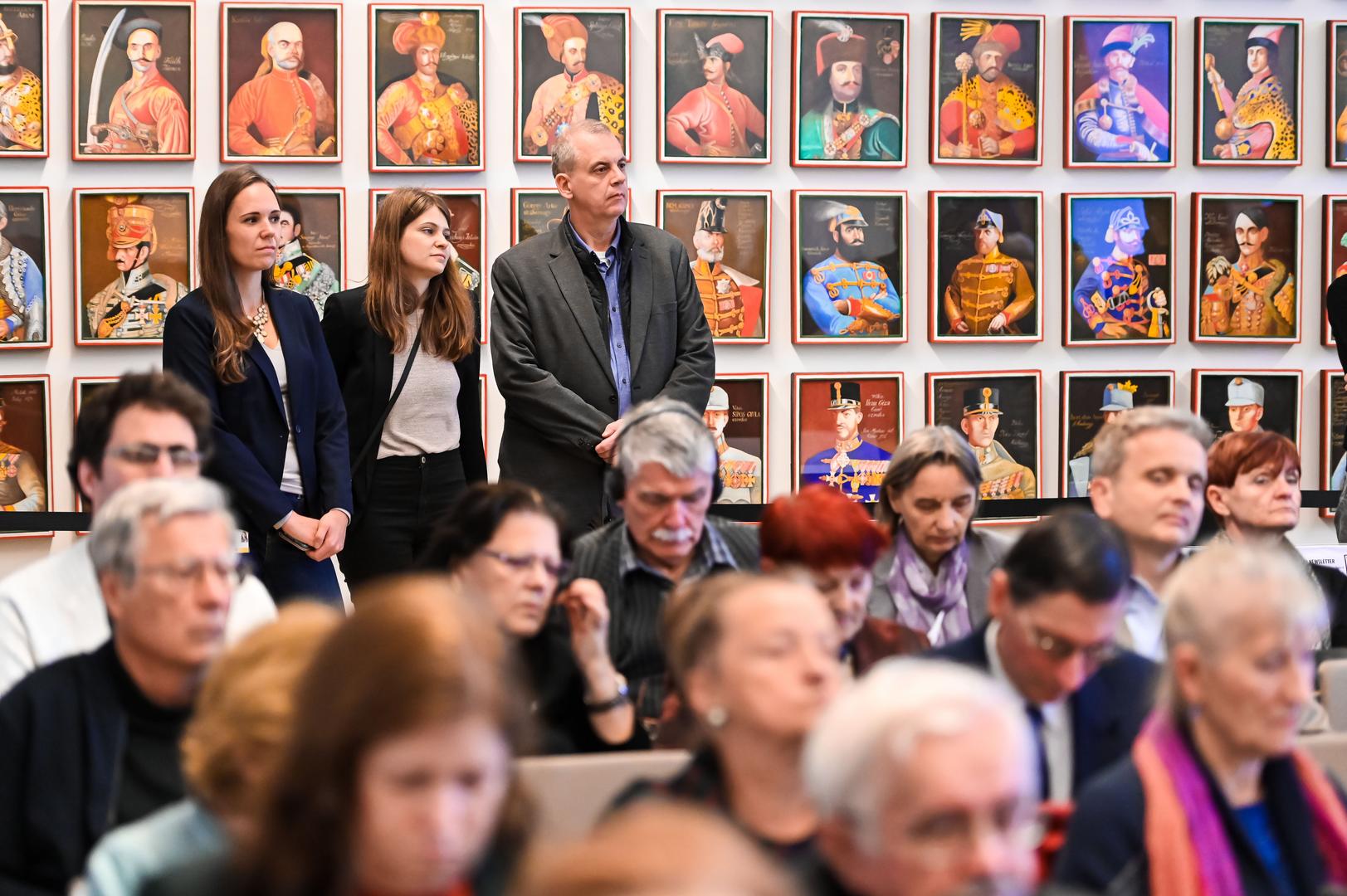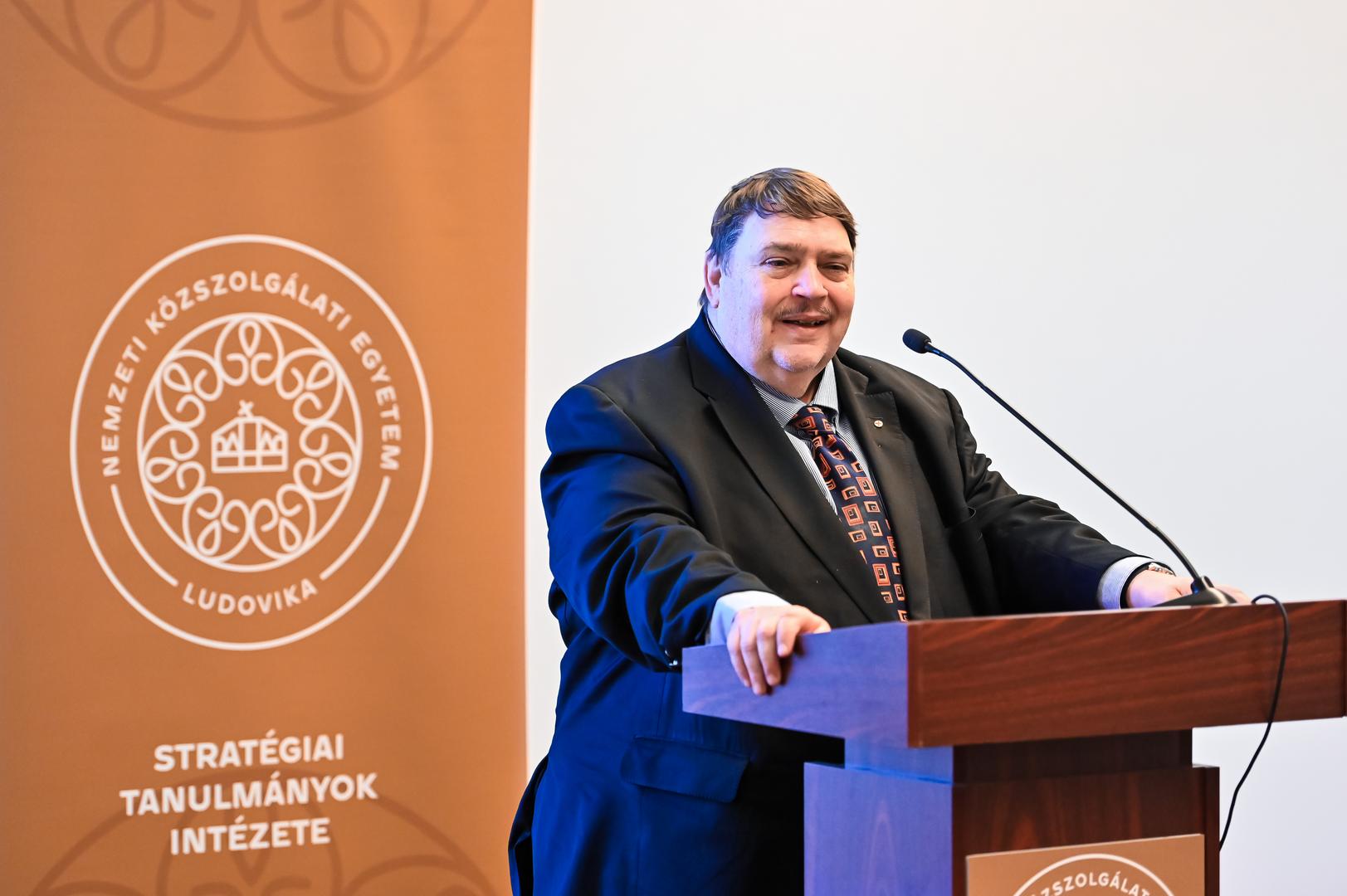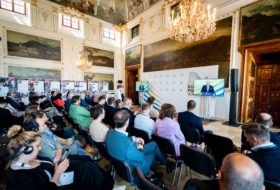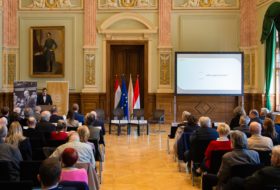“The ideas of Klemens von Metternich, born 250 years ago, can be interpreted not only as a subject of historical reconstruction, but a political legacy that serves as a model even to this day”, highlighted Gergely Prőhle, Director of our Foundation and the Institute for Strategic Studies of the University of Public Service. He pointed out that for Kissinger, the historical basis for understanding the multipolar international system was the emergence of the concert of Europe following the turbulent period of the Napoleonic Wars and the patterns of action necessary for its formation provided by the actors who led it, above all, by the political genius of Chancellor Metternich. Regarding Bernd Posselt, the first speaker of the event, Director Prőhle noted that he is not only an outstanding expert on Metternich’s life’s work, whose rich professional and political experience can be drawn on throughout the conference, but also a politician who is particularly sensitive to the fate of minorities and who has done a lot for Hungarians beyond the borders.
Bernd Posselt, former colleague of Otto von Habsburg and former MEP, began his presentation by expressing his pleasure in coming to Hungary, which he visited several times over the past decades under the auspices of the Pan-European Union and to which he is also connected through his personal family history. The speaker then explained how the Austrian Empire’s former Minister of Foreign Affairs and Chancellor’s political socialisation, thinking, and later career were shaped by the dual identity of his family – Rhineland and Bohemian – his formative years at the University of Strasbourg and his many experiences during the French Revolution. The former MEP underlined that all these factors contributed immensely to Metternich’s realisation that the future appeared to be unfolding along the lines of a liberal, constitutional state structure, while the development of the rights of freedom might well result in nationalism and the disintegration of the European order. In the face of these dangers, he regarded the concept of federalism as one of the foundations of a solid European order and an effective and flexible means of conflict resolution. He underlined that the concept of Metternich did not aim at perfection but at a balance of great powers—while its durability is demonstrated by the fact that it offered a sustainable and comprehensive settlement after a major military conflict, which ensured peace in Europe for decades after the fundamental upheavals of the French Revolution and the Napoleonic Wars. In the course of the lecture, he already underlined the idea, which he would further emphasise later, that the only empirical experience of politics comes from the contemplation of history and that the system that bears Metternich’s name shows that peace is only possible if we endeavour to create an order in which everyone has a stake.
The other keynote lecture was given by Zoltán Fónagy, associate professor at the Institute of History at Eötvös Loránd University, who described the highlights and lessons of Gyula Andrássy’s political oeuvre in a kind of parallel biography. He stressed that the political and diplomatic career of the Hungarian statesman, born 200 years ago, culminated as being the Prime Minister of Hungary and later Foreign Minister of the Monarchy. His early diplomatic experience and European outlook made him not only one of the leading architects of the Reconciliation but subsequently also one of the shapers of the Monarchy’s foreign policy. His prime ministerial career coincided with the economic and social modernisation of Hungary, laying the cornerstones of the Rule of Law, and as foreign minister, he participated in one of the most significant European diplomatic events of the second half of the 19th century, the Berlin Congress of 1878, which settled the Balkan issue. According to the speaker, Metternich and Andrássy shared the ability to reconcile local identity with imperialism and a coherent vision of Europe.
In the following roundtable discussion moderated by Gergely Prőhle, the panellists, Péter Szatmári, General and Development Policy Vice-Rector of the Milton Friedman University, Róbert Fiziker, historian, Senior Archivist of the National Archives of Hungary and Tamás Magyarics, historian, former ambassador to Dublin, spoke about the political and diplomatic activities of Metternich, Gyula Andrássy and Henry Kissinger, noting that their political legacy can offer new perspectives for understanding and dealing with the events of our time.
Before the conference, Bernd Posselt and his colleagues visited the Otto von Habsburg Foundation, where he gave an oral history interview about his life, his personal relationship with our namesake, the past decades of the Pan-European movement and his experiences in the European Parliament. The interview also provides an interesting insight into the evolution of European politics in recent decades and offers valuable inputs for a more comprehensive understanding of Otto von Habsburg’s political profile. This marks the third time this year that a close associate of the former Crown Prince and European politician has come to the Foundation, following visits by Hans-Friedrich von Solemacher in March and Knut Abraham in June.
Photographs by Dénes Szilágyi (NKE/NUPS)
